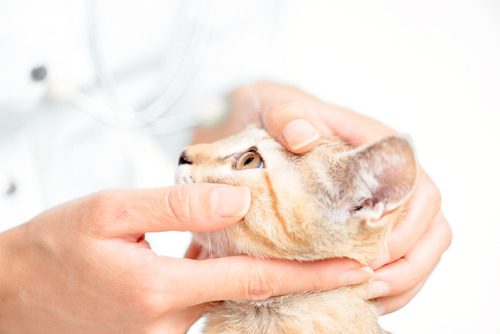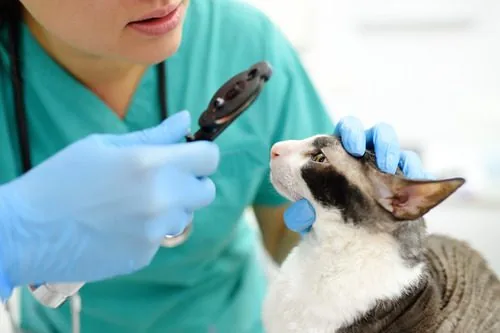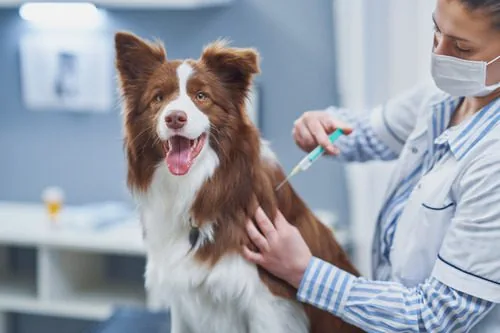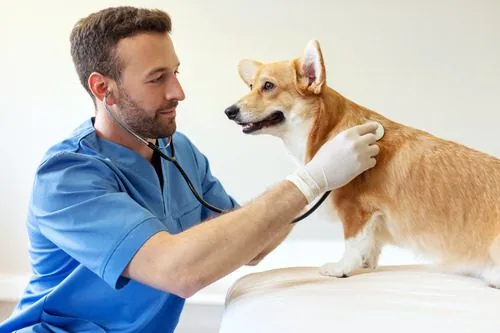Cat Conjunctivitis: Should You See the Vet for Feline Pink Eye?
Cat conjunctivitis, commonly known as feline pink eye, is a condition that cat owners might encounter during their cat’s life. It’s characterized by inflammation of the conjunctiva, the thin layer of tissue that covers the white of the eye and the inside of the eyelids. This condition can cause discomfort and irritation for your feline friend and may require veterinary attention. In this blog, we will discuss what cat conjunctivitis is, its symptoms, causes, and the importance of seeing a vet. For more information or to schedule an appointment, call Saratoga Veterinary Hospital at (518) 587-3832.

What is Cat Conjunctivitis?
Cat conjunctivitis is the inflammation of the conjunctiva, which can result in redness, swelling, and discharge from the eye. This condition is often compared to pink eye in humans, and it can be just as uncomfortable for cats. It can affect one or both eyes and may vary in severity. Cat conjunctivitis can be caused by various factors, including infections, allergies, or foreign bodies in the eye.
Common Symptoms of Cat Conjunctivitis
Notable symptoms include:
- Redness and swelling of the eye
- Watery or thick discharge from the eye
- Squinting or frequent blinking
- Sensitivity to light
- Rubbing or pawing at the eye
Causes of Cat Conjunctivitis
Some of the most common causes include:
- Viral Infections: Feline herpesvirus is a leading cause of conjunctivitis in cats.
- Bacterial Infections: Bacteria like Chlamydophila felis and Mycoplasma can also cause this condition.
- Allergies: Environmental allergens such as pollen, dust, or mold can lead to conjunctivitis.
- Irritants: Foreign bodies, smoke, or chemicals can irritate the eyes and cause inflammation.
- Underlying Health Issues: Conditions like feline immunodeficiency virus (FIV) or feline leukemia virus (FeLV) can predispose cats to conjunctivitis.
When to See the Vet for Cat Conjunctivitis
Determining when to see a vet for cat conjunctivitis can be challenging. However, seeking professional advice is often necessary to ensure your cat’s health and comfort. A proper veterinary diagnosis allows for targeted treatment, which can prevent complications and promote quicker recovery. Your vet will perform a thorough examination and may conduct tests to determine the cause of the inflammation.
Treatment Options for Cat Conjunctivitis
Once diagnosed, the treatment for cat conjunctivitis will depend on the underlying cause. Potential treatment options include:
- Antibiotics: If a bacterial infection is present, your vet may prescribe antibiotic eye drops or ointments.
- Antiviral Medications: For viral infections like feline herpesvirus, antiviral medications can help manage the symptoms.
- Anti-Inflammatories: These medications can reduce swelling and discomfort in the eye.
- Allergy Management: If allergies are the cause, your vet may recommend changes to your cat’s environment or prescribe antihistamines.
- Removing Irritants: If a foreign body is causing the irritation, your vet will remove it and treat any resulting inflammation.
Utilizing Pet Insurance for Your Cat’s Care
Pet insurance offers support for managing your cat’s healthcare needs, including conditions like conjunctivitis. It may cover veterinary visits, diagnostic tests, and medications, giving you peace of mind while focusing on your cat’s well-being. Having pet insurance in place ensures you can prioritize the care your cat needs.
Ways to Prevent Cat Conjunctivitis
While it may not always be possible to prevent cat conjunctivitis, there are steps you can take to reduce the risk and maintain your cat’s eye health.
- Regular Veterinary Check-Ups: During these visits, your vet can check your cat’s eyes for any signs of conjunctivitis or other eye conditions.
- Maintaining a Clean Environment: Regularly clean your home and minimize exposure to smoke, chemicals, and other potential irritants.
- Monitoring for Allergies: If your cat has known allergies, work with your vet to manage them effectively. This may include using air purifiers, avoiding certain allergens, and providing allergy medications as needed.
How Saratoga Veterinary Hospital Can Help
At Saratoga Veterinary Hospital in Wilton, NY, we understand the importance of prompt and effective treatment for cat conjunctivitis. Our experienced veterinarians are here to provide comprehensive care for your cat, from diagnosis to treatment and follow-up care. If you suspect your cat has conjunctivitis, call us at (518) 587-3832 to schedule an appointment.
Recent Posts
Dog Nose Dripping: Why Your Dog Has a Runny Nose
Dog Nose Dripping: Why Your Dog Has a Runny Nose A dog’s nose is an important part…
Cat Eye Infection: Symptoms & Treatment
Cat Eye Infection: Symptoms & Treatment When your cat has an irritated or weepy eye, it’s hard…
Lyme Disease Vaccines for Dogs
Lyme Disease Vaccines for Dogs Protecting your dog from Lyme disease is an essential step in supporting…
Kennel Cough Vaccine
Kennel Cough Vaccine Kennel cough is a highly contagious respiratory condition that can affect dogs of all…
What Is the Pet Insurance Waiting Period?
What Is the Pet Insurance Waiting Period? When you decide to invest in pet insurance, you may…
About Saratoga Veterinary Hospital
Saratoga Veterinary Hospital is proud to serve as your local veterinarian of choice in WIlton, NY and the surrounding areas. Since its founding in 1973 by Dr. Sofarelli, our animal hospital’s main goal has been to strengthen the human-animal bond with exceptional veterinary medicine and client services.







